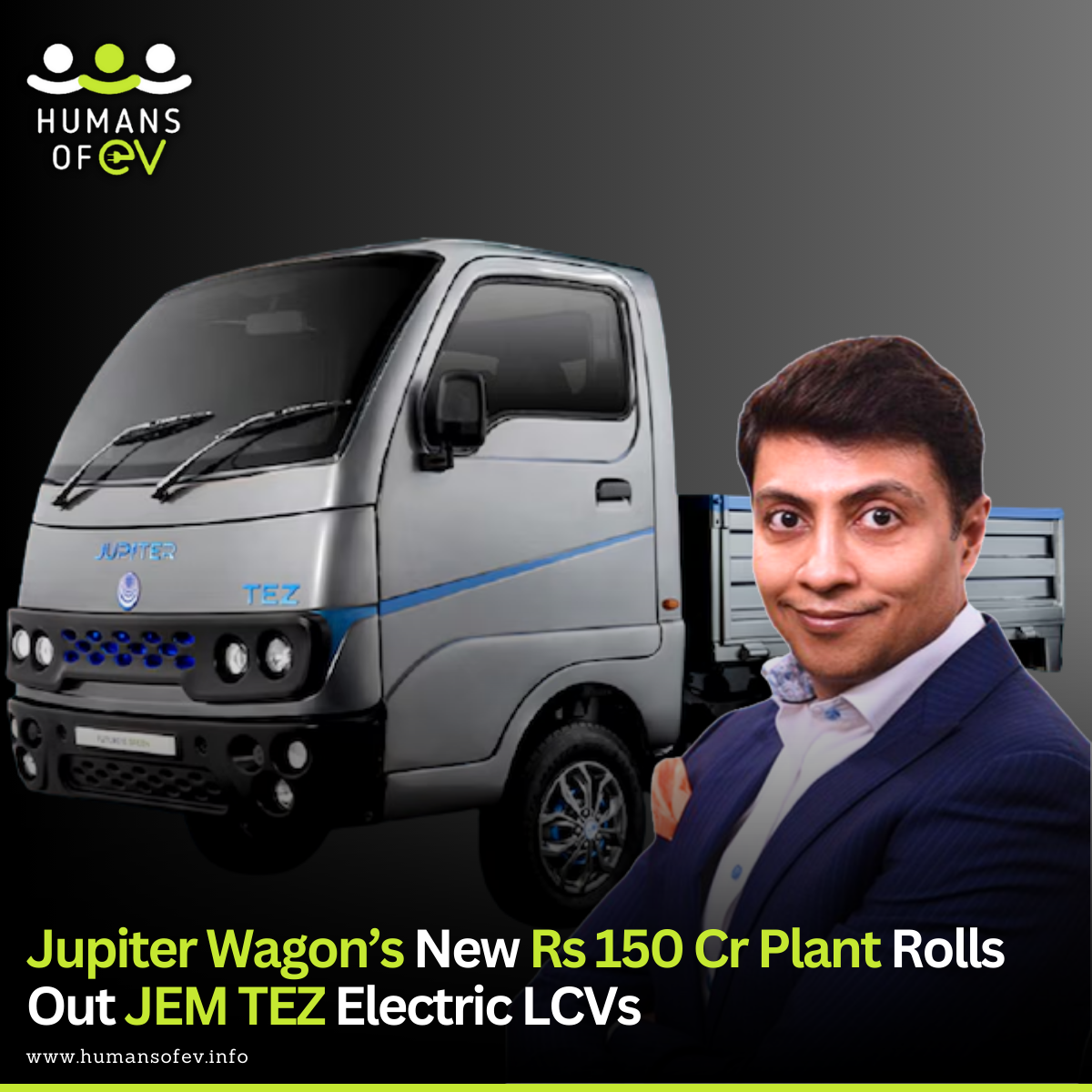
March 4th, 2025
Rail component giant unveils ambitious electric LCV roadmap, leveraging cross-sector synergies to enter India’s booming EV market
In a strategic diversification that bridges its traditional railway expertise with India’s surging electric vehicle market, Jupiter Wagons Ltd. has officially powered up its electric mobility division with a substantial footprint. The BSE-listed company, long known for supplying critical components to Indian Railways, inaugurated its state-of-the-art electric light commercial vehicle manufacturing facility in Pithampur, Madhya Pradesh on Monday, marking a calculated entry into one of India’s fastest-growing automotive segments.
The Dual-Track Strategy
Jupiter Wagons has historically operated on two separate tracks: its flourishing railway division—specializing in wheels, axles, and braking systems for high-speed rail—and a smaller but steady commercial vehicle segment supplying load bodies and chassis to major OEMs. While the railway business thrived, the commercial division remained underutilized—until now.
“The question was, how do we revolutionize that part of the business?” explained Vivek Lohia, Managing Director of Jupiter Wagons, at the launch of the company’s flagship electric LCV, the JEM TEZ.
The answer materialized through an unexpected convergence of the company’s existing competencies. Rather than perceiving its divisions as separate entities, Jupiter recognized the potential synergies between its railway expertise, commercial vehicle manufacturing capabilities, and newly acquired battery technology.
Building the Ecosystem From Within
Jupiter’s expansion into the automotive sector accelerated in 2022 with its acquisition of Commercial Engineers & Body Builders Company Ltd. (CEBBCO), establishing the company as a key supplier to industry giants like Tata Motors and Ashok Leyland. This move complemented a parallel venture into electric mobility through its subsidiary, Jupiter Electric Mobility (JEM).
Initially, JEM formed a joint venture with EA GreenPower Private Limited to introduce American electric trucks to India. When high import costs made this approach unviable, Jupiter pivoted toward developing domestic electric LCVs for last-mile delivery and e-commerce logistics—a segment with compelling economics. Operating costs for electric LCVs stand at approximately Rs 6 per kilometer for a 1-tonne vehicle and Rs 3-4 per kilometer for a 2-tonne vehicle, substantially lower than diesel alternatives.
The most strategic piece of Jupiter’s EV puzzle fell into place with its acquisition of Log9’s railway and truck battery divisions. This move secured access to cutting-edge battery technology and manufacturing capabilities, allowing Jupiter to control the most expensive component in EV production while reducing dependency on external suppliers.
Manufacturing Muscle
The newly inaugurated manufacturing facility in Pithampur represents a Rs 150 crore investment with an annual production capacity of 8,000–10,000 electric LCVs. Unlike many EV startups relying on contract manufacturing, Jupiter has committed to in-house production.
“The advantage is that this business is complementary to our existing capabilities,” noted Lohia, highlighting how the company’s established infrastructure provides built-in efficiencies. The current capacity is expected to meet demand for the next two to three years, with expansion plans tied to market performance.
A Measured March Forward
In stark contrast to the hypergrowth strategies of many EV startups, Jupiter is adopting a disciplined approach to market expansion. “Our first-year goal is not to chase volume but to establish our brand and build trust,” Lohia emphasized.
The company aims for Rs 100 crore in revenue with fewer than 1,000 vehicles in its initial phase, prioritizing product reliability, dealer network development, and robust after-sales service. From this foundation, Jupiter projects a sustainable year-on-year growth rate of at least 2x.
The rollout strategy targets high-adoption markets including Bengaluru, Delhi, Hyderabad, Ahmedabad, Mumbai, Kolkata, and Chennai, complemented by strategic alliances with logistics firms and charging infrastructure providers such as Porter, Pulse Energy, Battwheel, and Tapfin.
The Long Game
Looking ahead, Lohia envisions Jupiter Electric Mobility becoming a significant player in India’s commercial EV sector within five to six years, though he remains pragmatic about specific targets.
“I can’t predict exact numbers—whether it will be 50,000 vehicles or 100,000—but our goal is to be acknowledged as a serious contender in the industry,” he stated.
This measured approach, focusing on credibility and ecosystem integration rather than production volume alone, distinguishes Jupiter Wagons in India’s increasingly crowded EV landscape. While many competitors race toward market share at the expense of profitability, Jupiter appears content to build methodically, leveraging its diverse competencies to create sustainable competitive advantages.
Whether this railway veteran can successfully navigate the highways of electric mobility remains to be seen, but its integration of manufacturing expertise, battery technology, and strategic patience suggests a company playing the long game in a market often distracted by short-term victories.



